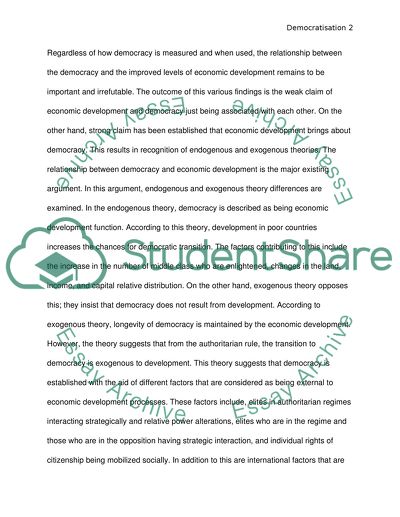Cite this document
(“'Economic development is a prerequisite to democratisation.' Discuss Essay”, n.d.)
Retrieved from https://studentshare.org/environmental-studies/1412218--economic-development-is-a-prerequisite-to
Retrieved from https://studentshare.org/environmental-studies/1412218--economic-development-is-a-prerequisite-to
('Economic Development Is a Prerequisite to democratisation.' Discuss Essay)
https://studentshare.org/environmental-studies/1412218--economic-development-is-a-prerequisite-to.
https://studentshare.org/environmental-studies/1412218--economic-development-is-a-prerequisite-to.
“'Economic Development Is a Prerequisite to democratisation.' Discuss Essay”, n.d. https://studentshare.org/environmental-studies/1412218--economic-development-is-a-prerequisite-to.


